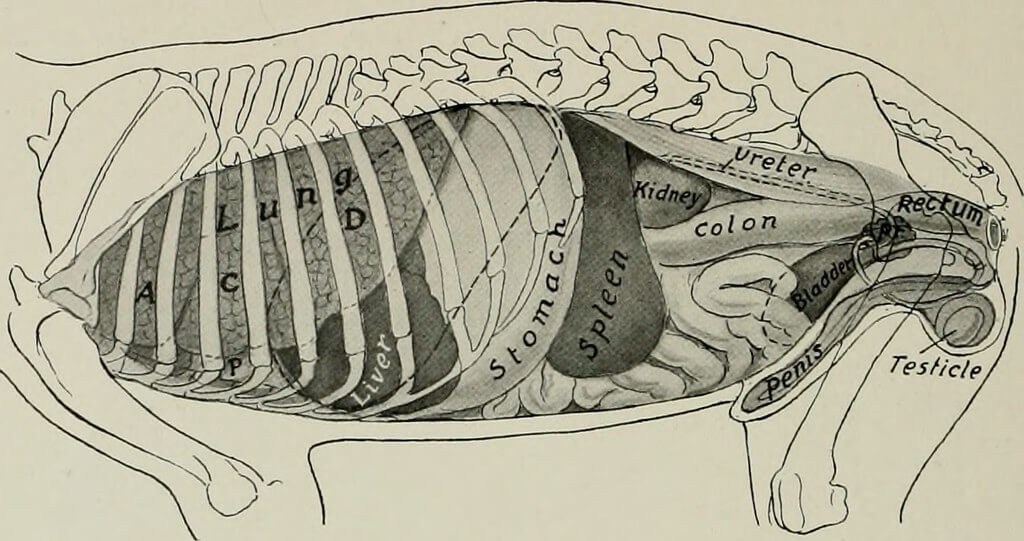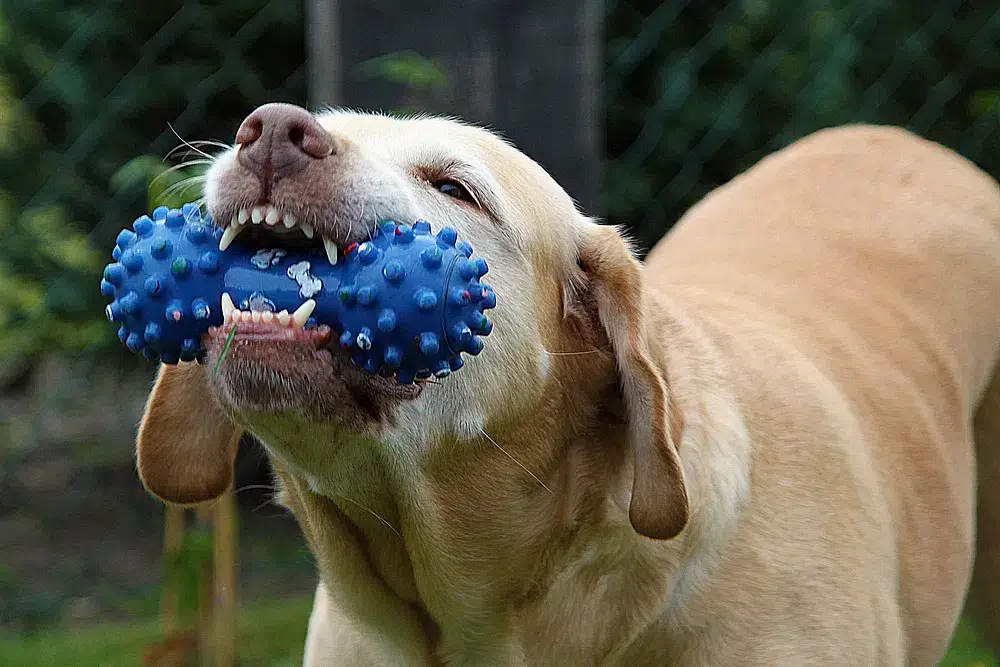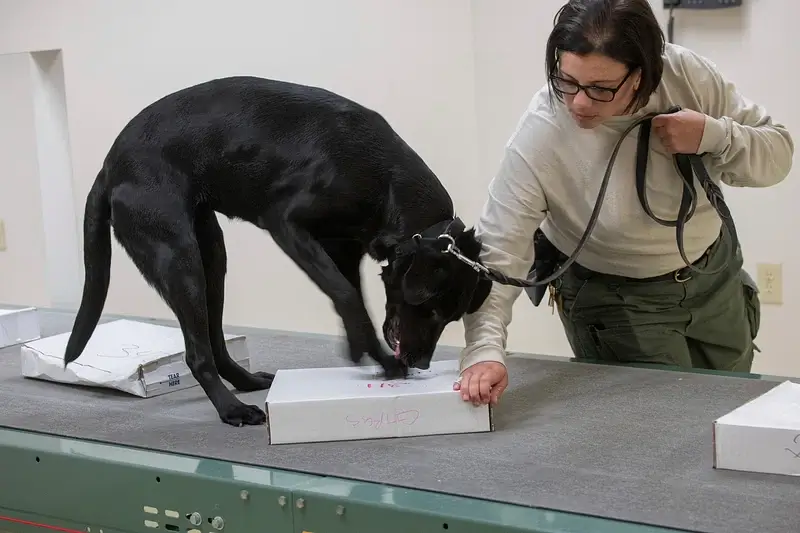How Long Does it Take a Dog to Digest Food
Ever thought, “How long does it take a dog to digest food” The health of dogs requires an understanding of how they digest their food. Dogs have a system inside them that breaks down the food they eat so their bodies can use it. On average, it takes a dog 6 to 8 hours to digest food and pass it through their system, although this can vary based on their diet and individual metabolism.
Digestion in Dogs: When your dog eats, the food goes through a journey in their body. It starts in their mouth, where chewing mixes the food with saliva that contains special helpers called enzymes. These enzymes begin breaking down carbohydrates. After swallowing, the food moves down the throat into the stomach, which has strong acids to help break down proteins. This is where we start to answer the question, “How long does it take a dog to digest food?”
The Digestive Process: After the stomach, the food heads into the small intestine, where most of the nutrients get absorbed into the body. Here, enzymes from the pancreas and bile from the liver continue breaking down the food. Then, what’s left goes into the large intestine, where water gets absorbed, and poop forms. Knowing how long it takes for a dog to digest food helps us decide when and what to feed them. Things like their breed, age, and what they eat affect how quickly they digest. By considering these things and feeding them a balanced diet, we can keep their digestion working well.
Anatomy of a Dog’s Digestive System

The digestive system of a dog is a complex network of organs and tissues designed to process food and absorb nutrients. It includes several key components:
- Mouth: Food enters the mouth, where it is chewed and mixed with saliva, containing enzymes that begin the breakdown of carbohydrates.
- Esophagus: Food is ingested and then passed down the esophagus, a muscular tube that uses rhythmic contractions known as peristalsis to carry it to the stomach.
- Stomach: In the stomach, food is further broken down by gastric juices containing hydrochloric acid and enzymes like pepsin. Protein digestion is aided by this acidic environment.
- Small Intestine: The majority of nutritional absorption occurs in the small intestine. Enzymes from the pancreas and bile from the liver continue the breakdown of carbohydrates, proteins, and fats, allowing nutrients to be absorbed into the bloodstream.
- Pancreas: The pancreas produces digestive enzymes, such as amylase, lipase, and proteases, which are released into the small intestine to aid in digestion.
- Liver and Gallbladder: The liver produces bile, which is stored and concentrated in the gallbladder before being released into the small intestine. Bile facilitates the simpler digestion of lipids by emulsifying them.
- Large Intestine (Colon): Feces are the result of the large intestine absorbing water and electrolytes from undigested food. It also houses beneficial bacteria that aid in the fermentation of certain carbohydrates.
- Rectum and Anus: When a person defecates, their waste is held in the rectum until it is released through the anus.
Understanding the anatomy of a dog’s digestive system is essential for comprehending how food is processed and how nutrients are absorbed in their bodies.
Factors Affecting Digestion Time in Dogs

Several factors can influence the digestion time in dogs:
- Breed: Different breeds may have varying digestion rates due to factors such as size, metabolism, and genetic predisposition. Larger breeds may have longer digestion times compared to smaller breeds.
- Age: Puppies generally have faster metabolism and digestion rates compared to adult or senior dogs. As dogs age, their digestion may slow down, requiring adjustments in feeding habits.
- Dietary Composition: The type and quality of food significantly impact digestion time. Foods rich in protein and fat may take longer to digest, while high-fiber diets can promote faster digestion.
- Meal Size: The amount of food consumed in each meal can affect digestion speed. Larger meals may take longer to digest compared to smaller, more frequent meals.
- Health Status: Underlying health conditions or medications may influence digestion. Digestive disorders, food intolerances, and gastrointestinal issues can affect digestion time and overall digestive health.
Understanding these factors can help pet owners make informed decisions about feeding schedules, dietary choices, and overall digestive health management for their dogs.
Timeline of Digestion in Dogs

The digestion process in dogs occurs in several stages, each with its timeline:
- Mouth: Food is first chewed and combined with saliva in the mouth to start the digestive process. Carbs are first broken down by salivary enzymes.
- Stomach: Once swallowed, food enters the stomach, where it undergoes further mechanical and chemical digestion. Gastric juices break down proteins, and the stomach churns to mix food with digestive enzymes.
- Small Intestine: The small intestine is where most nutrient absorption takes place. Here, nutrients can be taken into the bloodstream thanks to the breakdown process that is continued by pancreatic enzymes and liver bile.
- Large Intestine (Colon): Water and electrolytes from undigested food are absorbed in the large intestine and create feces.—Fermentation is aided by beneficial bacteria in the colon.
- Rectum and Anus: When a person defecates, their waste is held in the rectum until it is released through the anus.
The kind of food ingested, the size and breed of the dog, and their general health can all affect how quickly they digest food.
Digestive Problems and Abnormal Digestion Times
Several digestive problems can affect dogs and lead to abnormal digestion times:
- Gastric Issues: Digestive disorders such as gastritis, gastroenteritis, and gastric dilation volvulus (GDV) can disrupt normal digestion and lead to symptoms like vomiting, diarrhea, and abdominal discomfort.
- Food Intolerances and Allergies: Dogs may develop sensitivities to certain ingredients in their diet, leading to digestive upset and abnormal digestion times. Dairy products, some proteins, and cereals are common allergens.
- Blockages and Obstructions: Ingest foreign objects or food items can cause blockages in the digestive tract, leading to slowed digestion or even intestinal obstruction. It might be essential to do surgery to eliminate the impediment.
- Malabsorption Disorders: Conditions like exocrine pancreatic insufficiency (EPI) or inflammatory bowel disease (IBD) can interfere with nutrient absorption and digestion, resulting in chronic diarrhea, weight loss, and nutritional deficiencies.
Identifying and addressing these digestive problems promptly is crucial for maintaining your dog’s overall health and well-being.
Tips for Supporting Healthy Digestion in Dogs
To promote healthy digestion in dogs, consider the following tips:
- Provide a Balanced Diet: Choose high-quality dog food that is formulated to meet your pet’s nutritional needs. Do not give your dog table scraps or potentially dangerous foods.
- Control Meal Portions: Feed your dog appropriate portion sizes based on their size, age, and activity level. Overfeeding can result in digestive issues and obesiy.
- Hydration: Make sure your dog always has access to fresh, clean water.. Sufficient hydration is necessary for healthy digestion and general wellbeing.
- Regular Exercise: Regular physical activity helps promote gastrointestinal motility and prevent constipation. Take your dog for daily walks or engage in interactive play sessions to keep them active and healthy.
- Routine Veterinary Care: Schedule regular check-ups with your veterinarian to monitor your dog’s digestive health and address any concerns. Your vet can recommend dietary changes or supplements to support digestive function.
By implementing these tips and providing proper care, you can help support optimal digestive health in your furry friend.
Understanding the anatomy of a dog’s digestive system, factors affecting digestion time, the timeline of digestion, digestive problems, and tips for promoting healthy digestion are essential for pet owners to ensure their dogs maintain optimal digestive health and overall well-being. Regular veterinary check-ups and proper nutrition are key to supporting a healthy digestive system in dogs.
Tips for Supporting Healthy Digestion in Dogs

Maintaining a healthy digestive system is vital for your dog’s overall well-being. Here are some tips to support optimal digestion in your furry friend:
- Provide a Balanced Diet: Choose high-quality dog food that is tailored to your pet’s age, size, and activity level. Look for formulas that contain real meat as the primary ingredient and are free from artificial additives and fillers. A balanced diet provides essential nutrients for digestive health and overall vitality.
- Control Meal Portions: Avoid overfeeding your dog and instead, feed them appropriate portion sizes based on their individual needs. Overfeeding can lead to obesity and digestive issues such as indigestion, bloating, and diarrhea. Consult your veterinarian to determine the ideal portion size for your dog based on their weight, breed, and lifestyle.
- Ensure Adequate Hydration: Always provide your dog with access to clean, fresh water throughout the day. Adequate hydration is crucial for maintaining proper digestive function, as water helps dissolve and transport nutrients, aids in the digestion process, and prevents constipation. Keep an eye on your dog’s water intake, particularly in hot weather or when they are exercising more.
- Promote Regular Exercise: Regular physical activity is not only essential for your dog’s overall health and fitness but also for promoting healthy digestion. Exercise helps stimulate gastrointestinal motility, which aids in the movement of food through the digestive tract and prevents constipation. Take your dog for daily walks, engage in interactive play sessions, or participate in canine sports to keep them active and their digestive system functioning optimally.
- Introduce Dietary Fiber: Incorporating dietary fiber into your dog’s diet can help support digestive health by promoting regular bowel movements and preventing constipation. Fiber-rich foods such as pumpkin, sweet potatoes, and green beans can be added to your dog’s meals as natural sources of fiber. Alternatively, consider switching to a dog food formula that contains added fiber for digestive support.
- Avoid Sudden Dietary Changes: Dogs can be sensitive to sudden changes in their diet, which may disrupt their digestive system and lead to gastrointestinal upset. When transitioning to a new food or introducing new ingredients, do so gradually over the course of several days to allow your dog’s digestive system to adjust. Monitor their stools and overall well-being during the transition period.
- Probiotics and Digestive Supplements: Consider incorporating probiotics or digestive supplements into your dog’s daily routine to support a healthy gut microbiome and improve digestion. Probiotics contain beneficial bacteria that help maintain a balanced gut flora, while digestive enzymes aid in the breakdown and absorption of nutrients. Consult your veterinarian to determine the appropriate supplement for your dog’s specific digestive needs.
- Regular Veterinary Check-ups: Schedule regular wellness exams with your veterinarian to monitor your dog’s digestive health and address any concerns or symptoms of digestive problems promptly. Your vet can provide guidance on maintaining a healthy diet, recommend digestive supplements if necessary, and diagnose and treat any underlying digestive disorders.
By following these tips and providing attentive care, you can help support optimal digestive health in your canine companion, ensuring they lead a happy and comfortable life. Remember to prioritize a balanced diet, portion control, hydration, exercise, and regular veterinary care to promote a healthy digestive system in your dog.
Conclusion
Supporting your dog’s digestive health is vital for their overall well-being. By following these tips, you can ensure they lead a happy, healthy life. Providing a balanced diet, controlling meal portions, and promoting hydration and regular exercise are essential. Introducing dietary fiber, avoiding sudden dietary changes, and considering supplements can further aid digestion. Regular veterinary check-ups are crucial for early detection and treatment of any digestive issues. With proper care, you can help your dog maintain optimal digestive function and enjoy a fulfilling life by your side.
FAQs: How Long Does it Take a Dog to Digest Food
What is the best time to give food a dog?
The best times to feed a dog are typically in the morning and early evening, ensuring a consistent routine that aligns with their digestive cycle and activity levels.
Do dogs usually poop right after they eat?
Dogs do not usually poop immediately after they eat; it typically takes about 6 to 8 hours for food to pass through their digestive system, although individual times can vary.
How to slow down dog digestion?
To slow down dog digestion, consider feeding smaller, more frequent meals and incorporating high-fiber foods into their diet. Using slow-feed bowls can also help prevent rapid eating.
How long can things stay in a dog’s stomach?
Things can stay in a dog’s stomach for about 2 to 3 hours before moving into the intestines, although this duration can vary depending on the type of food and the dog’s individual digestion rate.

